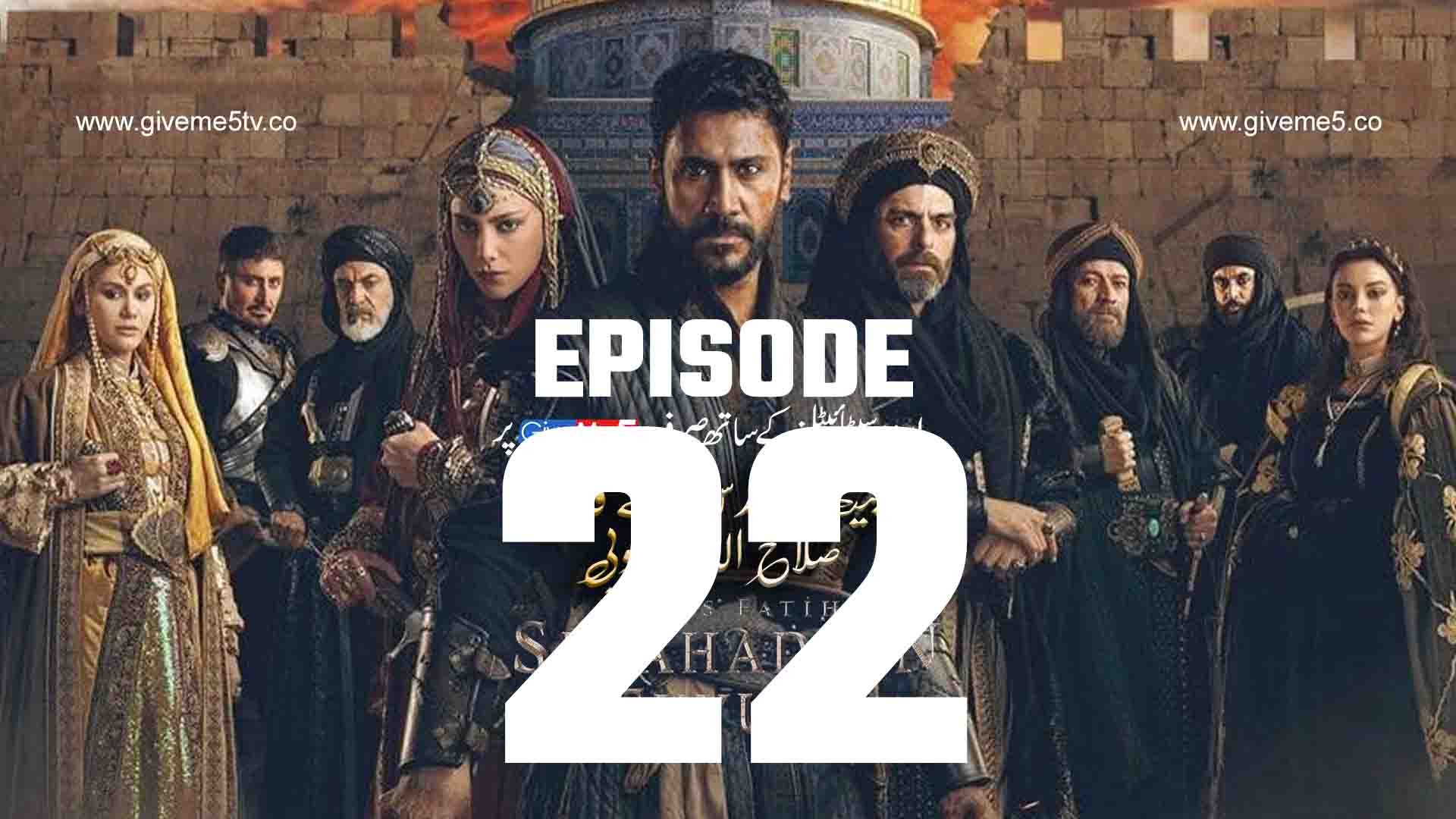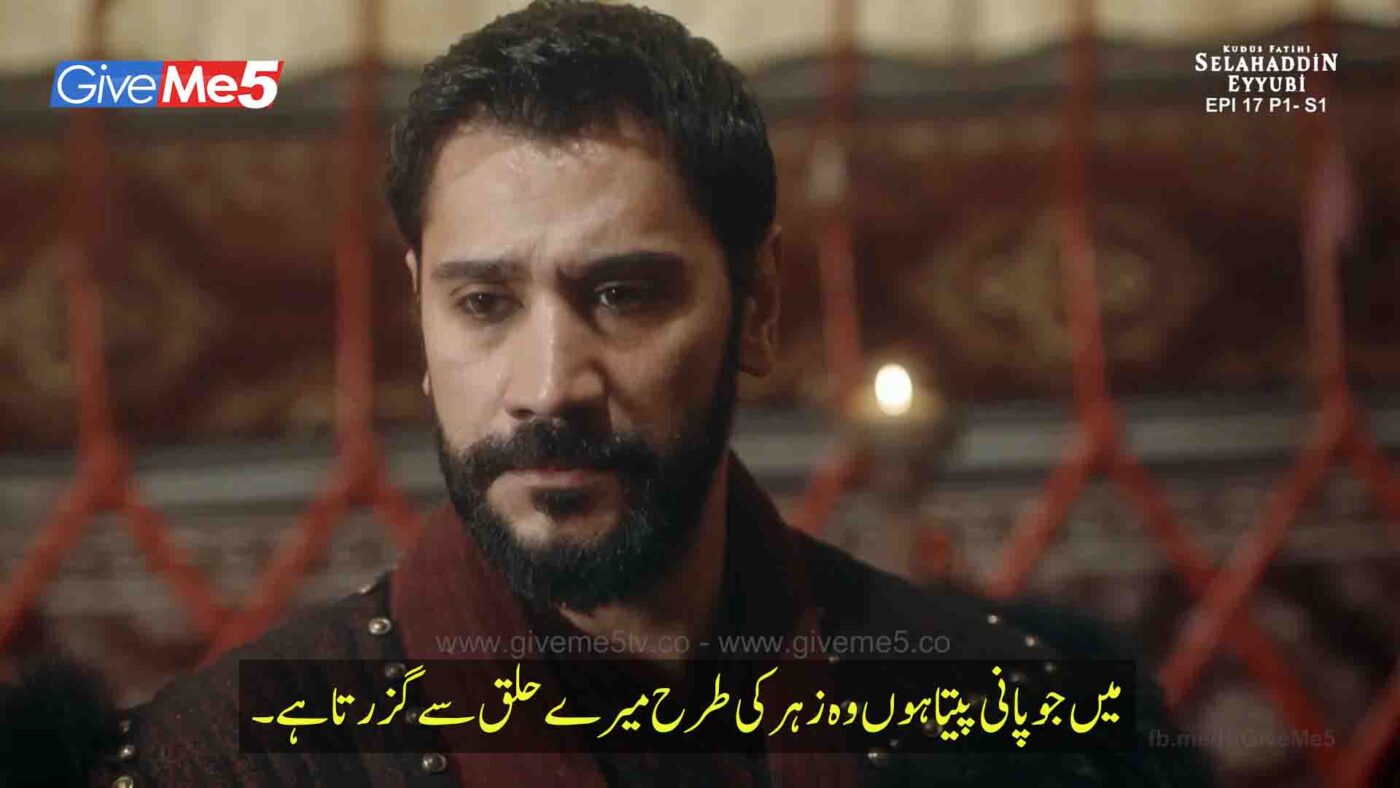This is Episode No 23 of Kudüs Fatihi Selahaddin Eyyubi with Urdu Subtitles by GiveMe5.
Ibrahim Bey and Yaqoob Bey, two formidable figures in the realm of political maneuvering and power dynamics, found themselves entangled in a complex web of conflicts with Osman Bey, a rival of equal stature. Their clashes, fueled by ambition, pride, and divergent ideologies, shaped the course of history in their region. In exploring their confrontations, it’s essential to delve into the backgrounds, motivations, and pivotal moments that defined their contentious relationships.
Ibrahim Bey, renowned for his strategic acumen and unwavering determination, rose to prominence through shrewd alliances and calculated maneuvers. His vision extended beyond mere conquest; he sought to establish a legacy that would endure through the annals of time. Yaqoob Bey, on the other hand, possessed a charismatic charm and persuasive rhetoric that endeared him to both allies and adversaries alike. His ascent to power was marked by a trail of diplomatic triumphs and tactical brilliance.
Salahuddin 23 CompleteOsman Bey, a formidable rival to both Ibrahim and Yaqoob, represented a formidable challenge to their ambitions. His rise to prominence mirrored theirs, characterized by cunning stratagems and decisive actions. However, where Ibrahim and Yaqoob favored diplomacy and subterfuge, Osman Bey relied on brute force and intimidation to assert his dominance. This fundamental difference in approach sowed the seeds of conflict that would soon erupt into open hostility.
The first flashpoint in their tumultuous relationship occurred during a crucial territorial dispute over a strategically significant province. Ibrahim Bey laid claim to the region, citing historical precedent and ancestral ties. Yaqoob Bey, however, contested his assertion, arguing that the province rightfully belonged to his domain based on a complex web of allegiances and treaties. Caught in the middle of this escalating feud, Osman Bey seized the opportunity to expand his influence, offering military support to whichever faction pledged allegiance to his cause.
As tensions mounted and skirmishes erupted along the disputed border, Ibrahim Bey and Yaqoob Bey found themselves locked in a bitter struggle for supremacy. Their once cordial relations deteriorated rapidly as accusations of betrayal and treachery poisoned the well of trust between them. Each sought to outmaneuver the other, employing spies, assassins, and double agents to gain the upper hand in the conflict.
Despite their best efforts to undermine each other, Ibrahim Bey and Yaqoob Bey soon realized that their true adversary lay not in each other but in the relentless ambition of Osman Bey. His cunning schemes and ruthless tactics threatened to engulf the entire region in a conflagration of violence and chaos. In a rare display of solidarity, Ibrahim Bey and Yaqoob Bey forged an uneasy alliance, setting aside their differences to confront the common threat posed by Osman Bey.
The ensuing confrontation between the three rivals would go down in history as one of the most fiercely contested battles of wills ever witnessed. Each side marshaled its forces, deploying armies of loyal soldiers and mercenaries to the front lines. The clash of swords and the roar of cannons reverberated across the countryside as the fate of nations hung in the balance.
In the end, it was not the strength of arms but the resilience of spirit that determined the outcome of the conflict. Ibrahim Bey and Yaqoob Bey, united in their determination to resist tyranny and oppression, stood firm against the onslaught of Osman Bey’s forces. Through sheer grit and determination, they emerged victorious, casting down their rival and securing their rightful place in history.
However, the cost of their victory was steep, exacting a toll of bloodshed and suffering that would haunt the land for generations to come. The scars of war ran deep, dividing families and communities and leaving a legacy of bitterness and resentment in its wake.
In the aftermath of the conflict, Ibrahim Bey and Yaqoob Bey faced the daunting task of rebuilding what had been lost and healing the wounds of the past. Though their alliance had been forged in the crucible of war, they recognized the importance of reconciliation and compromise in securing a lasting peace.
Despite their differences, Ibrahim Bey and Yaqoob Bey shared a common vision of a future where cooperation and mutual respect prevailed over conflict and strife. Their enduring legacy serves as a testament to the power of unity in the face of adversity and the ability of individuals to rise above their differences in pursuit of a greater good.
Salahuddin 23 CompleteThe recapture of Damascus under Salahuddin’s leadership was not just a military triumph but also a symbolic victory that bolstered Muslim morale and reinforced the idea of a unified front against external threats. It showcased Salahuddin’s capabilities as a leader and strategist, setting the stage for his subsequent successes in defending Muslim territories and challenging Crusader dominance in the region.
The events surrounding the loss and recapture of Damascus by Nur ad-Din Zengi and Salahuddin exemplify the complex dynamics of power, diplomacy, and military strategy in the medieval Islamic world. These historical episodes continue to resonate in discussions about the Crusades, Islamic history, and the enduring legacy of figures like Nur ad-Din and Salahuddin.













